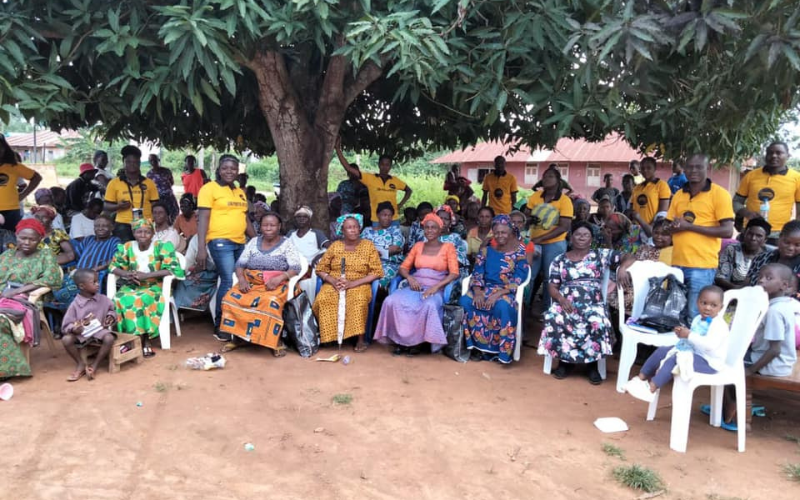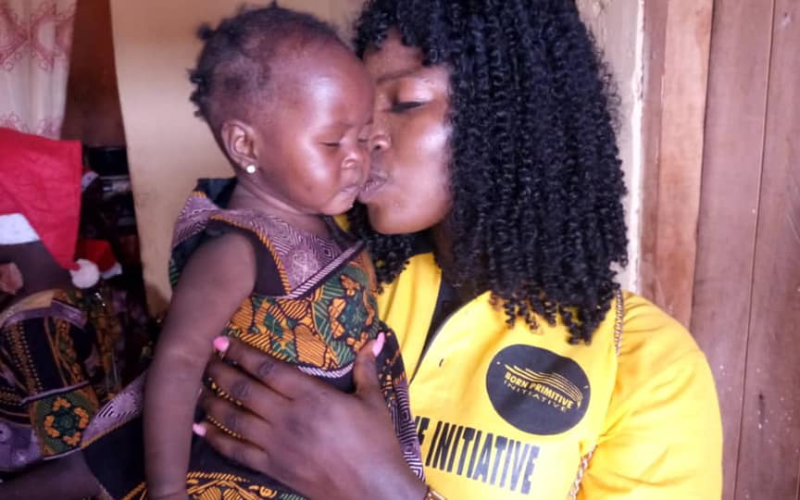How Elder John’s Campaign NGO Feeds 500 Widows
Elder John’s commitment to service is deeply rooted in his belief that leadership is about caring for the most vulnerable in society. One of the most significant efforts of his NGO, **Born Primitive Initiative**, is to address the critical needs of widows who often face economic and social hardships. In its most recent outreach, the initiative provided food and essential supplies to 500 widows, delivering not only sustenance but also hope and dignity to these women who have faced some of life’s greatest challenges.
The Plight of Widows in Our Society
Widows, especially in many rural communities, often face harsh realities. Many lose their source of financial support with the passing of their husbands, and in some cases, they are left without access to land, property, or income. Without adequate social safety nets or family support, they struggle to provide for their children, leading to malnutrition, poor health, and a cycle of poverty that can be difficult to escape.
Elder John understands these challenges all too well. He has spent years listening to the stories of widows in need and witnessing the hardships they endure. His heart for service drove him to create programs through Born Primitive Initiative that would alleviate the suffering of widows, providing them with much-needed resources to meet their basic needs.
Feeding 500 Widows: A Mission of Hope
The recent outreach of feeding 500 widows was part of Born Primitive Initiative’s broader mission to uplift the vulnerable, particularly women and children. This event, organized with great care and efficiency, brought together the widows from various communities, some traveling long distances to receive the support they desperately needed.
The initiative provided nutritious food packages, including rice, beans, cooking oil, and other essential items, ensuring that these widows would have enough food to feed their families for several weeks. In addition to food, the NGO distributed essential supplies such as toiletries and clothing, items that are often overlooked but are crucial for daily living.
This outreach was not just about providing material support; it was about restoring dignity and hope. Many of these widows have spent years feeling forgotten or abandoned by society, and this act of kindness reminded them that they are seen, valued, and cared for.
Building Community and Strengthening Bonds
Beyond the immediate provision of food, the event also fostered a sense of community among the widows. For many of these women, isolation is a significant issue, as they are often left to cope with their struggles alone. The gathering allowed them to connect with one another, share their experiences, and build relationships that could offer emotional and social support in the future.
Elder John, in his address to the widows, emphasized the importance of solidarity and compassion. “We are here today not just to provide food but to remind you that you are not alone. Together, as a community, we will rise and support one another,” he said. His words resonated deeply with the women, many of whom expressed their gratitude not only for the material assistance but for the sense of belonging the initiative fostered.
Transformative Impact
The impact of this outreach goes far beyond the food that was distributed. For many of the widows, this support has given them a renewed sense of hope and strength. With their immediate food needs met, they can focus on other aspects of their lives, such as caring for their children, seeking employment, or improving their health.
For some, like Mary, a widow with three young children, the food packages provided a lifeline. “I didn’t know how I would feed my children this week,” she said tearfully. “This food means we can survive another day, and for that, I am deeply grateful.” Stories like Mary’s are common, and they serve as a powerful reminder of the difference that even small acts of kindness can make in the lives of those in need.
Looking to the Future
The success of this outreach has inspired Born Primitive Initiative to continue and expand its efforts to support widows and other vulnerable groups. Elder John’s vision is to create sustainable programs that not only provide immediate relief but also empower these women to achieve long-term economic independence. Plans are underway to introduce skill acquisition and entrepreneurship programs for widows, giving them the tools and resources to create a more stable future for themselves and their families.
Conclusion
Elder John’s Born Primitive Initiative is a shining example of how compassionate leadership can bring about real change in the lives of vulnerable populations. By feeding 500 widows, the NGO has provided not only food but also hope, dignity, and a sense of community. Elder John’s unwavering commitment to service continues to uplift those who need it most, ensuring that no one is left behind in the pursuit of a better, more equitable society. With initiatives like this, Born Primitive is paving the way for a brighter future where everyone, regardless of their circumstances, has the opportunity to thrive.




